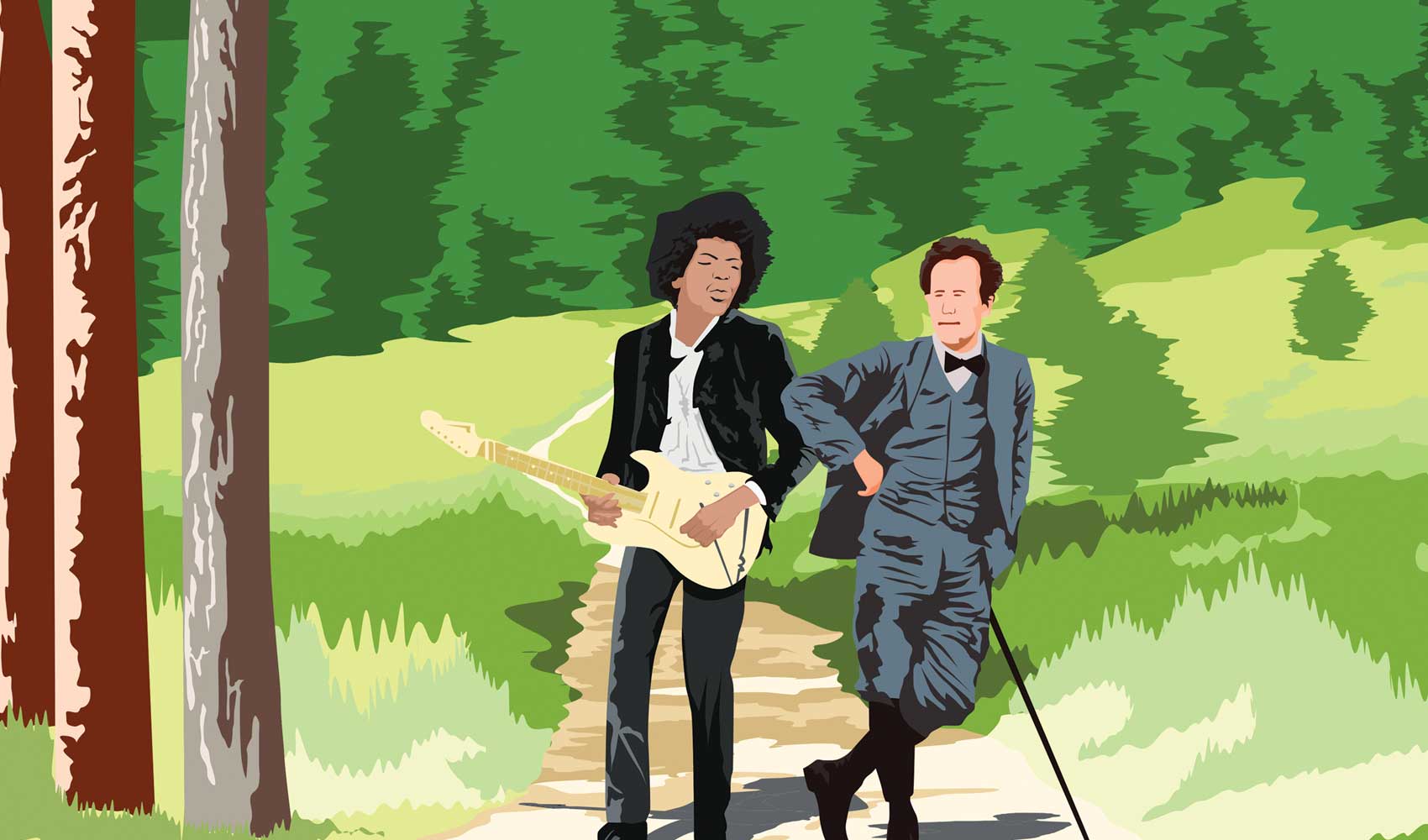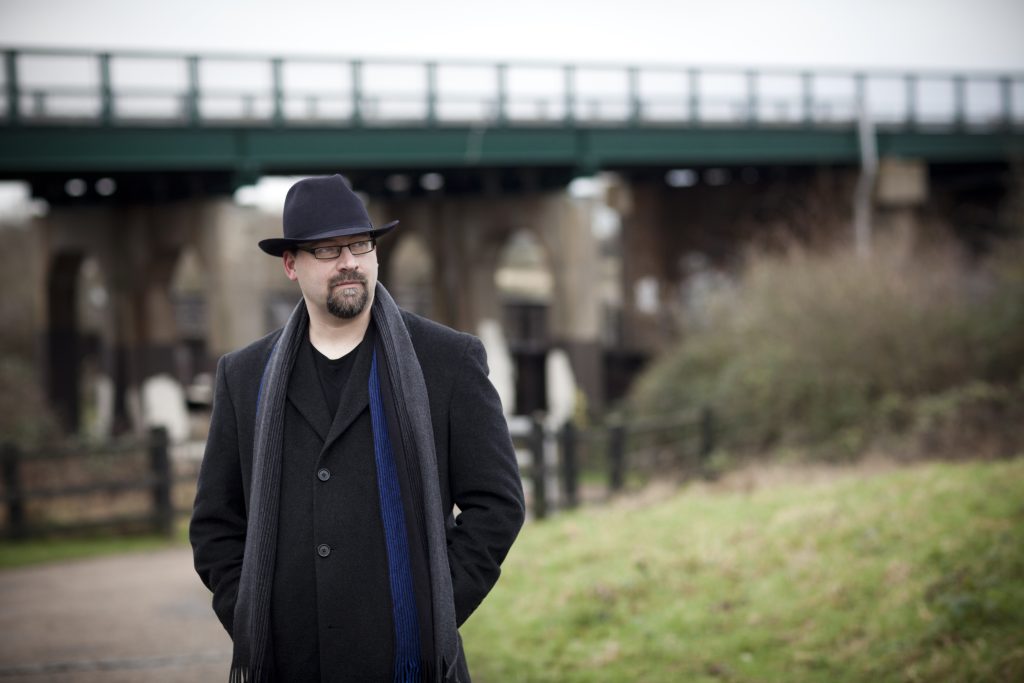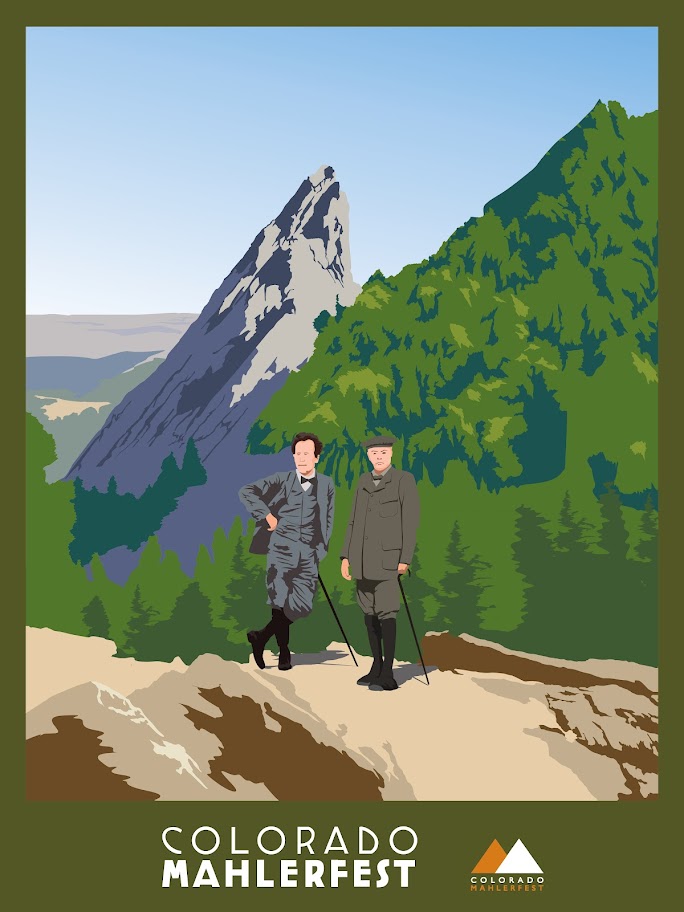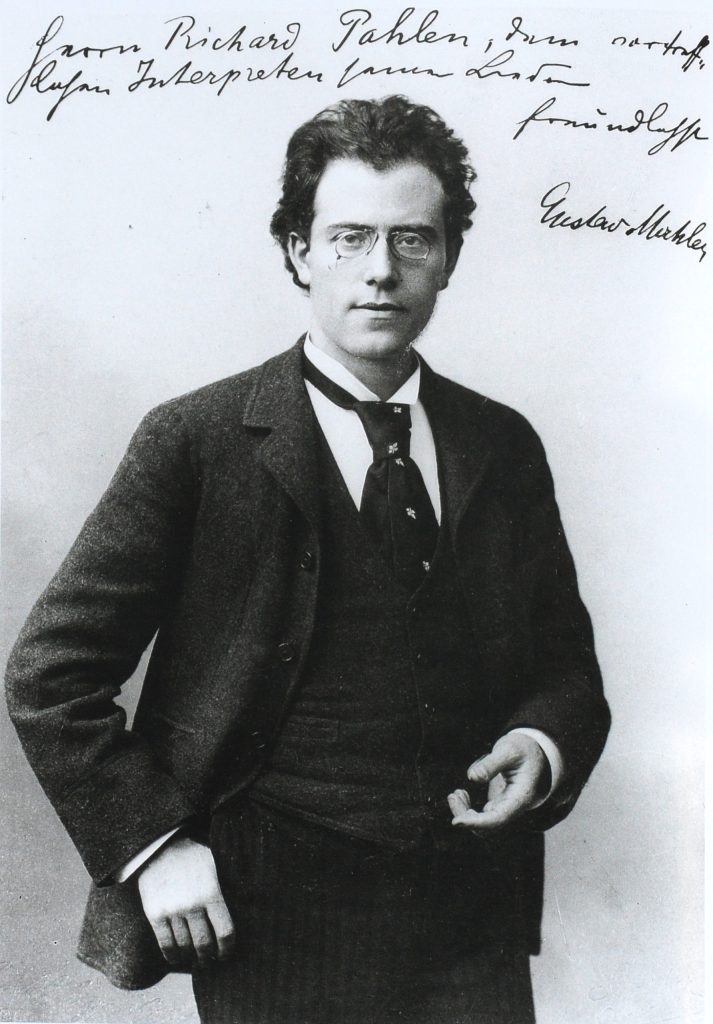
Nearly two decades ago, a 12,497-foot peak in Colorado’s Never Summer Mountains was officially named Mount Mahler to honor the Austrian post-romantic composer. Colorado MahlerFest, the annual Boulder event dedicated to his music, was instrumental in lobbying for the toponym.
But the long-running festival is about more than its mountain-sized namesake. This year’s event will include works by Richard Strauss, Mahler’s contemporary, friend and sometime rival. Fittingly, the German composer’s An Alpine Symphony will be featured during this month’s MahlerFest 37, whose theme is “Mahler and the Mountains.”
“The last time Mahler conducted Strauss was at a concert in New York before his final illness and death in 1911,” says MahlerFest Music Director Kenneth Woods. Mahler paired his own Fourth Symphony with the Strauss tone poem Ein Heldenleben.
In 1915, Strauss composed An Alpine Symphony, his last and largest tone poem — an orchestral work typically composed of a single, unbroken movement — in part as a memorial to Mahler. “He struggled with the work and its concept until Mahler died, then it became clear to him,” Woods says. “It seemed like such a poignant and lovely connection.”

‘First-class brass’
An Alpine Symphony will anchor the first of two major concerts at Macky Auditorium on May 18, and Mahler’s Fourth Symphony is the featured work on the following night. The Fourth is Mahler’s most modestly scored symphony and An Alpine Symphony is truly massive, with an orchestra as large as Mahler himself ever used.
“We’ve worked incredibly hard to build a first-class brass section, and the Fourth is not too big on the brass,” Woods says, noting that it does not even include trombones. “We didn’t want them to have the year off.”
An Alpine Symphony is 50 uninterrupted minutes of music that graphically illustrates the climb up a peak, concluding with a thunderstorm and descent. It begins with the sunrise and ends with nightfall.
The Fourth Symphony, Mahler’s vision of “Heavenly Life” from the perspective of a child, uses an orchestral song with soprano solo as its final movement. April Fredrick, featured on the last two MahlerFest programs, will sing the part.

Coming down from the summit
Both concerts will pair the major works with pieces written for strings only. Preceding the Mahler symphony on the Sunday concert is a much later piece by Strauss, his Metamorphosen (Metamorphoses) for 23 solo strings, written in 1945 near the end of the composer’s long life. Woods says it is an awe-inspiring work, whose craftsmanship is beyond belief.
“From a professional point of view, Mahler and Strauss ascended an artistic summit,” he says. “When you get to the summit, you have to come down at some point, but Mahler’s early death left that descent to Strauss. If An Alpine Symphony represents the end of his public and revolutionary phase, then the deeply felt Metamorphosen is Strauss at his most personal and intimate.”
The Sunday program opens with a third work, Richard Wagner’s jubilant prelude to the 1867 opera Die Meistersinger von Nürnberg. “Wagner is one of the important influences for both Mahler and Strauss, and they took his ideas in vastly different directions,” Woods says.
On the Saturday program, the other work is Mahler’s arrangement for string orchestra of Franz Schubert’s 1824 String Quartet in D minor known as “Death and the Maiden.” Woods says that Mahler’s inspiration for his symphonies came from songs, including the spirit of the great songwriter Schubert. Mahler was also influenced by Schubert’s later large-scale instrumental works like this quartet.
“I see the Fourth as Mahler’s most Schubertian symphony, so there is another connection,” Woods says. “The arrangement is a great window onto Mahler’s worldview as an interpreter.”

ON THE BILL: Colorado MahlerFest presents works by Richard Strauss and Gustav Mahler. 7:30 p.m. Saturday, May 18 (An Alpine Symphony by Strauss) and 3:30 p.m. Sunday, May 19 (Symphony No. 4 by Mahler), Macky Auditorium, 1595 Pleasant St., Boulder. $35-$75
More MahlerFest
Wednesday, May 15: “Visions of Childhood”
7:30 p.m., Mountain View United Methodist Church, 355 Ponca Place, Boulder. $35-$45
This program for chamber orchestra includes arrangements of various works with childhood themes, including songs by Schubert, Mahler and Strauss. “I conceived it as an upbeat to the Mahler Fourth,” Woods says.
The Strauss Four Last Songs, contemporary with Metamorphosen, are featured, as is Wagner’s Siegfried Idyll, and thus all three composers on the larger programs. April Fredrick is also the vocalist on this program.
Thursday, May 16: “Mountains of Brass”
3 p.m., Canyon Theater at Boulder Public Library, 1001 Arapahoe Ave.
This free concert is a brass quintet program featuring players from the MahlerFest Orchestra’s brass section. “We wanted to get the brass in front of everyone, and it’s an interesting, wide-ranging program,” Woods says. Major works by Victor Ewald and Joan Tower are included.
Friday, May 17: Schoenberg & More + Electric Liederland: Hendrix Meets Mahler
7 and 9 p.m., Roots Music Project, 4747 Pearl St., Suite V3A, Boulder. $35 for both ($25 and $15 individually)
This double bill at a non-traditional venue opens with a standard chamber music concert including Arnold Schoenberg’s Transfigured Night, a blues cakewalk by Taylor Perkinson for solo violin, and contemporary pieces for two violas played by the Tallā Rouge Duo.
After a break, Woods will play electric guitar with a rock trio in a fusion program inspired by Jimi Hendrix, who loved the music of Mahler. Two late Mahler pieces are played in Hendrix-inspired arrangements, along with Jimi’s own “Machine Gun.”
Saturday, May 18: MahlerFest Symposium
9:30 a.m. to 5 p.m., Mountain View United Methodist Church, 355 Ponca Place. Free
Lectures by guest scholars on Mahler’s Fourth Symphony and other topics.
